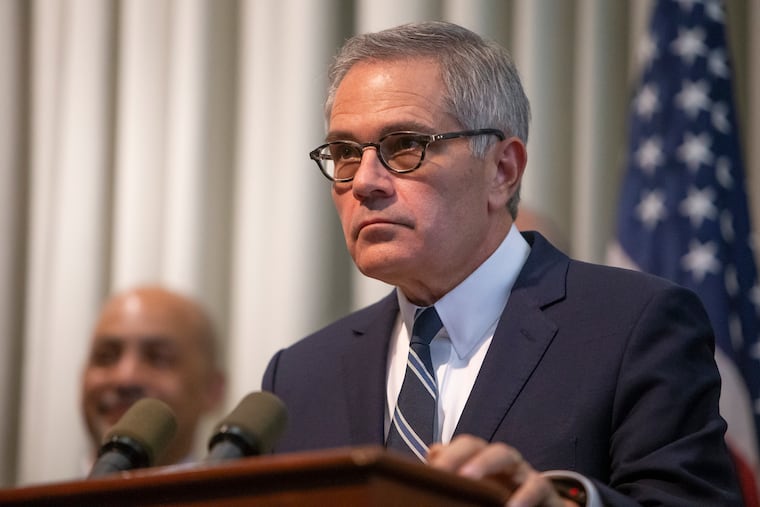It’s time for Pennsylvania to abolish the death penalty | Editorial
The strongest argument against the death penalty in Pennsylvania: More people have been exonerated than executed.

This week, District Attorney Larry Krasner argued in a brief to the Pennsylvania Supreme Court that the death penalty in Pennsylvania is unconstitutional. Krasner’s office reviewed every death sentence imposed on a Philadelphian between 1978 and 2017 -- a total of 155 sentences -- and found that 72 percent of the sentences were overturned, most due to inadequate representation. The major point is that race, income, and intellectual disability determines who ends up on death row.
Krasner’s brief was in support of a petition urging the state Supreme Court to use its power to weigh in on the constitutionality of the death penalty. The petition is the result of a consolidation of two cases brought by two people on death row, Jermont Cox and Kevin Marinelli. Other organizations -- such as the Juvenile Law Center and the ACLU of Pa. -- have also filed briefs in support of the petition. Attorney General Josh Shapiro argued against the petition in a brief stating that the future of the death penalty should be determined by the legislature, not the judiciary.
Arguing that the death penalty in Pa. is broken is not a stance exclusive to progressives. Last summer, the Pennsylvania’s General Assembly Joint State Government Commission, a bipartisan effort, released a condemning report on the death penalty. Over 280 pages, the Commission found that the death penalty is applied unevenly across the commonwealth, affected by factors like race and county. The Commission further noted the large proportion of people with mental illness and intellectual disabilities on death row -- a population that is supposed to be constitutionally protected from the death penalty.
The report concluded with multiple recommendations on how to fix capital punishment in Pennsylvania. There is a simpler solution: abolish the death penalty.
The strongest argument against the death penalty in Pennsylvania: More people have been exonerated than executed. Since the death penalty was reinstated in Pennsylvania in 1976, hundreds of people were condemned to death, while only three people were executed. All three of them were mentally ill and had waived their appeal. In the same time period, six people on death row were exonerated.
The 140 people now on death row are languishing in indefinite, de facto solitary confinement, sometimes for decades. If that is not cruel punishment, what is?
Abolishing the death penalty is possible. New Hampshire did it just a few weeks ago -- leaving Pa. as the last state in the northeast to have the death penalty on the books. But Pennsylvania could be next. Rep. Chris Rabb (D, Philadelphia) and Rep. Frank Ryan (R, Lebanon) plan to introduce in the fall bipartisan legislation to abolish the death penalty. In 2015, Gov. Tom Wolf put a moratorium on executions.
The death penalty is expensive, unevenly applied, and, according to a consensus among criminologists, does not deter crime. Whether it is through the state’s Supreme Court or bipartisan legislation, this upcoming fall could finally offer the best chance for Pennsylvania to abolish the death penalty.